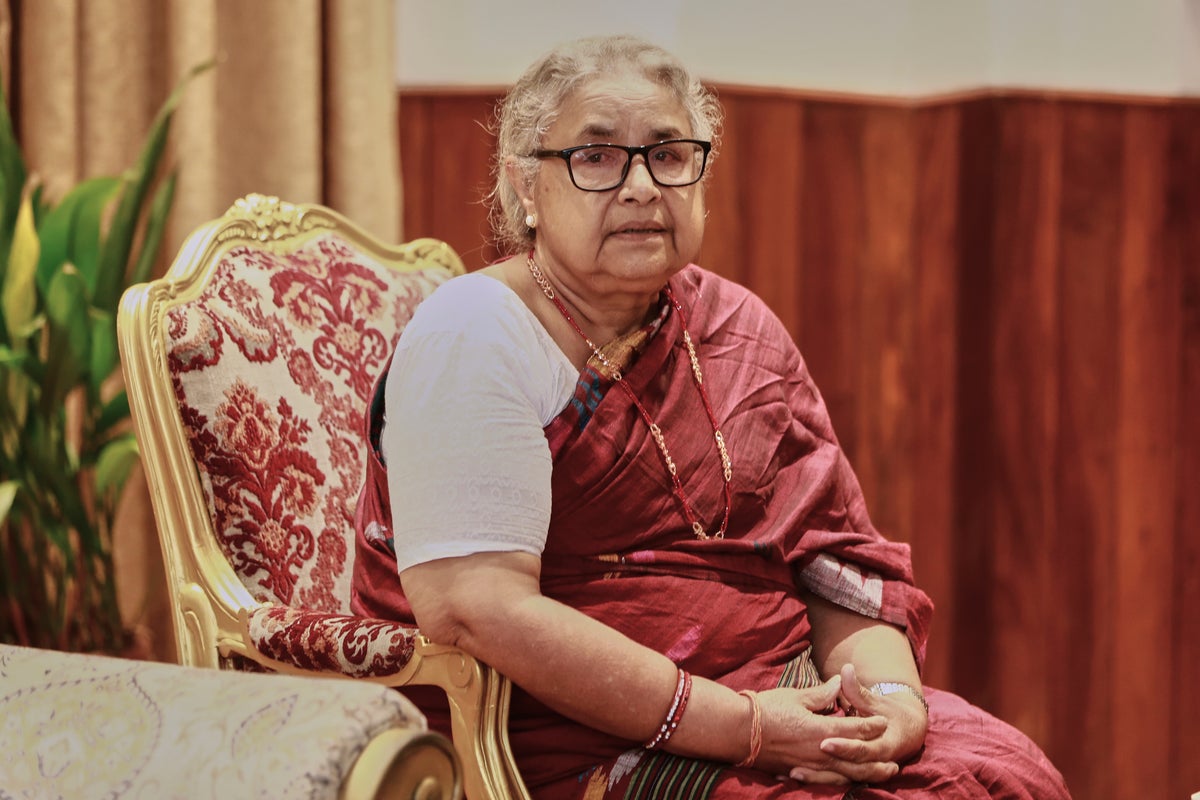Politics
Nepal Appoints First Female Prime Minister Amid Deadly Protests

Nepal has made history by appointing its first female prime minister, Sushila Karki, following a week of violent protests that led to the collapse of the previous government. The former Supreme Court chief justice took the oath of office late on Friday to lead an interim government. Karki, aged 73, is known for her strong stance against corruption during her tenure as the court’s only female chief justice from 2016 to 2017.
Her appointment comes on the heels of a tumultuous week in Nepal, where over 50 people lost their lives in clashes with riot police. The unrest began after the government imposed an abrupt ban on 26 social media platforms, including Facebook, Instagram, YouTube, and X (Twitter), in an effort to silence criticism. This ban only intensified frustrations among the youth, who are already disillusioned by rampant corruption, high unemployment, and a political elite perceived as unaccountable.
Although the social media ban was lifted on Monday, protests escalated, culminating in demonstrators setting fire to parliament and government buildings in the capital, Kathmandu, on Tuesday. This wave of violence forced Prime Minister KP Sharma Oli to resign. Reports indicate that many of the deceased were protesters killed by police fire, while three police officers also lost their lives during the unrest.
In response to the escalating violence, the military imposed a curfew on Tuesday, allowing residents limited time to purchase food and supplies while soldiers patrolled the streets of Kathmandu. This is not the first instance of social media censorship in Nepal; in 2023, the government banned TikTok, alleging it spread indecent content and disrupted “social harmony.” That ban was later reversed when TikTok agreed to comply with local regulations.
The current protests are among the deadliest in Nepal’s recent history, surpassing the fatalities of the 2006 uprising that led to the end of the monarchy. Earlier this year, two people died during royalist rallies in Kathmandu after clashes with police. Following Oli’s resignation, protesters are now calling for the dissolution of the entire government, heightening concerns about further instability in a nation that has seen 13 administrations since 2008.
Despite the chaos, Karki has garnered support from the youth to lead the interim government. On Tuesday, she visited protest sites in Kathmandu, where she met with injured individuals receiving treatment in hospitals. Karki hails from a family with ties to the Koirala political dynasty, associated with the country’s largest democratic party, the Nepali Congress. She is married to Durga Subedi, a former youth leader of the same party.
As Nepal navigates this challenging period, the appointment of its first female prime minister could signal a new chapter in the nation’s political landscape, one that may bring hope for reform and stability in a country grappling with deep-rooted issues.
-

 Health3 months ago
Health3 months agoNeurologist Warns Excessive Use of Supplements Can Harm Brain
-

 Health3 months ago
Health3 months agoFiona Phillips’ Husband Shares Heartfelt Update on Her Alzheimer’s Journey
-

 Science1 month ago
Science1 month agoBrian Cox Addresses Claims of Alien Probe in 3I/ATLAS Discovery
-

 Science1 month ago
Science1 month agoNASA Investigates Unusual Comet 3I/ATLAS; New Findings Emerge
-

 Science4 weeks ago
Science4 weeks agoScientists Examine 3I/ATLAS: Alien Artifact or Cosmic Oddity?
-

 Entertainment4 months ago
Entertainment4 months agoKerry Katona Discusses Future Baby Plans and Brian McFadden’s Wedding
-

 Science4 weeks ago
Science4 weeks agoNASA Investigates Speedy Object 3I/ATLAS, Sparking Speculation
-

 Entertainment4 months ago
Entertainment4 months agoEmmerdale Faces Tension as Dylan and April’s Lives Hang in the Balance
-

 World3 months ago
World3 months agoCole Palmer’s Cryptic Message to Kobbie Mainoo Following Loan Talks
-

 Science4 weeks ago
Science4 weeks agoNASA Scientists Explore Origins of 3I/ATLAS, a Fast-Moving Visitor
-

 Entertainment4 months ago
Entertainment4 months agoLove Island Star Toni Laite’s Mother Expresses Disappointment Over Coupling Decision
-

 Entertainment3 months ago
Entertainment3 months agoMajor Cast Changes at Coronation Street: Exits and Returns in 2025









